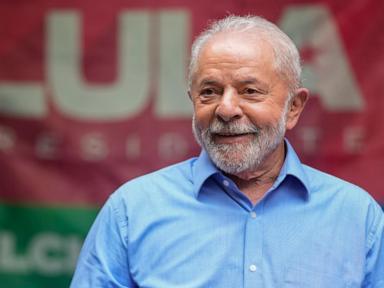Brazil’s real has fallen to its weakest level against the dollar since the currency was introduced in 1994, undercut by investors’ frustration with President Luiz Inácio Lula da Silva’s efforts to rein in government spending
ByMAURICIO SAVARESE Associated Press
December 18, 2024, 6:52 PM
SAO PAULO — SAO PAULO (AP) — Brazil’s real on Wednesday fell to its weakest level against the dollar since the currency was introduced in 1994, undercut by investors’ frustration with President Luiz Inácio Lula da Silva’s efforts to rein in government spending.
A bill backed by Lula that aims to slash 70-billion-real ($11 billion) in government spending is being debated in Brazil’s lower house of Congress. But some market players have said it is insufficient to shore up Brazil’s finances.
The real shed 2.8% of its value against the U.S. dollar Wednesday, depreciating to 6.26 per dollar. It’s the weakest the currency has been in nominal terms since its adoption in an economy with a history of boom-and-bust cycles and bouts of high inflation.
This year, it has lost nearly 23% of its value against the U.S. currency.
Brazil’s lower house late Tuesday passed some less-divisive elements of the bill, but key parts — such as restrictions to increases in the minimum wage — have yet to be taken up for a vote. The Senate also needs to vote on what the lower house approves, and Congress adjourns Friday.
Brazil’s central bank has repeatedly intervened in local currency markets to stem the real’s slide but so far has largely failed to stop the bleeding. Economists say the currency’s weakness, which will increase costs of Brazilian imports, could trigger inflation as soon as January.
“The government sent a package that is seen as insufficient, and it will be watered down in Congress. It also comes with a measure to increase spending through income tax,” analyst Mario Sérgio Lima, from Medley Advisors, told The Associated Press. “The real at 6 per dollar looks acceptable, but nearing 6.30 looks like an exaggeration.”
Lula, who is recovering from surgery to stop a brain bleed, told TV Globo on Sunday that his administration is fiscally responsible and downplayed concerns in the financial markets.
“It is not the market that needs to be worried about government spending. It is our administration. If I don’t rein in spending, if I spend more than I have, it is the poor people who will pay for it,” the Brazilian president said.
Brazil’s Economy Minister Fernando Haddad said the real’s steep depreciation does not reflect the realities of the country’s economy, noting that inflation and unemployment figures are improving.
“Some are talking about speculation, including respectable journalists,” Haddad told journalists in Brazil’s capital, Brasilia, without providing more details. “Our currency floats and at this moment, when some things are pending (in Congress), there’s an atmosphere of uncertainty that makes the currency float. But I believe it will find its ground.”
































